
Fernand Gravey
出生 : 1905-12-25, Ixelles, Brabant, Belgium
死亡 : 1970-11-02
略歴
Fernand Gravey (25 December 1905 in Ixelles (Belgium) – 2 November 1970 in Paris, France), also known as Fernand Gravet in the United States, was the son of actors Georges Mertens and Fernande Depernay, who appeared in silent films produced by pioneer Belge Cinéma Film (a subsidiary of Pathé).
Gravey started performing at age five under his father's direction.
Before World War I, he received an education in Britain and could speak both French and English fluently, something which became useful in his movie roles. During the war, Gravey served in the British Merchant Marine Corp.
In 1936, he married the French actress Jane Renouardt, who was 15 years his senior. They remained together until his death on 2 November 1970 of a heart-attack. Jane died on 3 February 1972. They had no children.
Gravey performed in four films in 1913 and 1914 (as Fernand Mertens), but his first film of importance was L'Amour Chante, released in 1930. In 1933, he made Bitter Sweet, his first English language movie, which became more famous in its 1940 incarnation with Jeanette MacDonald and Nelson Eddy.
In 1937, after several more French and British movies, Gravey went to Hollywood, where the spelling of his last name was altered to Gravet, and he became the focus of a rather extensive Hollywood publicity campaign (instructing moviegoers to pronounce his name properly: "Rhymes with Gravy"). Unfortunately for Gravey, he was offered only standard parts, the type of Gallic-lover roles that Louis Jourdan played in the 1950s and 1960s.
The first two films he made in Hollywood were for Warner Brothers: The King and the Chorus Girl (1937), with Joan Blondell and Jane Wyman, and Fools for Scandal (1938), with Carole Lombard and Ralph Bellamy. Gravey then signed with Metro-Goldwyn-Mayer and was cast as Johann Strauss in the expensive biopic The Great Waltz, with Luise Rainer and Miliza Korjus.
MGM next planned to star Gravey in a film version of Rafael Sabatini's adventure novel Scaramouche, but instead he returned to France just before the Nazi occupation began. Although he had agreed to appear in German-approved French films, Gravey was an underminer of the invaders as a member of the French Secret Army and the Foreign Legion.
At the end of the war, Gravey was considered a war hero, and continued to be featured in French productions such as La Ronde (with Danielle Darrieux), and Royal Affairs in Versailles (1954). Among his last English language performances were How to Steal a Million (1966), Guns for San Sebastian (1968) and The Madwoman of Chaillot (1969), in which he played the police inspector.
Source: Article "Fernand Gravey" from Wikipedia in English, licensed under CC-BY-SA 3.0.

(archive footage)
Gene Kelly and Fred Astaire present more golden moments from the MGM film library, this time including comedy and drama as well as classic musical numbers.

Labrize

Jean-Michel Serusier
A single mother raises her son in impossible circumstances first in Leningrad, then Krakow, and then France, and is over-ambitious about him but never gives in.
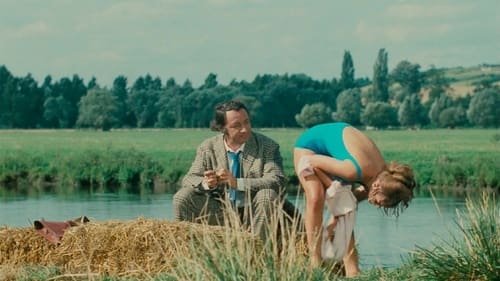
Le capitaine Ragot

Police sergeant
An eccentric Parisian woman's optimistic perception of life begins to sound more rational than the rather traditional beliefs of others.

Grammont
贋作画家シャルル・ボネの家に、内偵中の私立探偵シモンが忍び込んだ。ところがたちまち、画家の娘ニコルに発見されてしまう。シモンを泥棒と信じたニコルは、美術館からビーナス像を盗み出すことを依頼する。警戒厳重な美術館に、二人は潜入することに成功するが……。オードリーのロマンティック・コメディ。
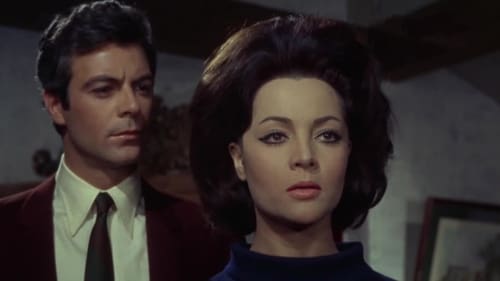
Dr. Castello
Isabel is a beautiful aspiring singer with great aspirations but persistent bad luck convicted of a crime she did not commit. Serving time in prison she is released under parole and lands a singing gig at a dive in Barcelona where she meets Sandro "The Greek" and his partner lover Gloria. The couple is posing as entertainment promoters but they are really running a prostitution ring based in Beirut. They offer Isabel a two-year contract to perform in "night clubs" in the Near and Mideast even after they learn that she cannot travel abroad due to her legal status. Upon arrival in Beirut, Isabel and the other girls are sped away to a luxurious villa where they discover the real intentions of the pseudo-promoters. They are expected to sing and dance but also to engage in sexual activities with the rich clients that patronize the place. Isabel pretends to go along with the situation but she has a plan to get away

François Legrand
In his desirable mansion, a widower wants to marry again with a twenty-year old brunette. His children disagree and they tell him so .
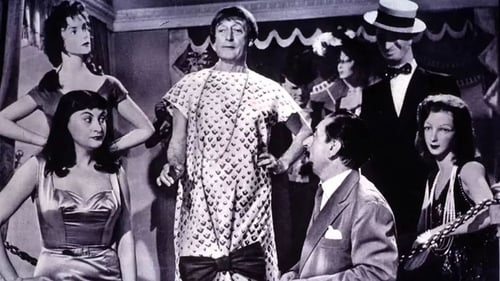
Il dottor Duclos
Duclos's son, a worldly gangster, is compromised in a case of which he is innocent. The proof of this innocence is in the hands of a "competitor", the Marquis de Chemantel de Beauvoiron, a misguided aristocrat. He asked for $ 10 million to cede the document. Duclos will then imagine Chemantel contracting $ 10 million in life insurance for his son. As he discovered in Rome a tramp, a look-alike of the marquis, he will bring this man to Paris and arrange for him to die accidentally.

Stanislas de La Ferronière
A young Parisian woman attends a school for coquettes in order to rise in society.

Raoul Grandvivier

Georges Sauvage
La Garçonne is a 1957 French film directed by Jacqueline Audry. It follows Monique, an ingenue and a clueless girl who believes in true love. When she discovers her future husband has a lover, she rebels against her bourgeois life:s he will lead a free and wild life and she will live like a man. Soon she becomes the toast of Gay Paris, sleeping with all the men around, and even with a woman.

Pierre Duroy-Lelong
During the First World War, the Empyrée Montmartre, a Paris music-hall, is dedicated to patriotic revues whose star is the charming Mitsou. The young artist is not without talent but she is mainly well-connected. She is indeed the cherished mistress of Pierre Duroy-Lelong, a rich industrialist. One night, thanks to Petite-Chose, an ebullient singer-dancer and her co-star, she gets to know a handsome army, Lieutenant Bleu. Mitsou falls madly in love with him and Lieutenant Bleu is physically attracted to her. The trouble is that Bleu comes from a distinguished family and cannot put up with her lack of culture and artistic bad taste...

Olivier Parker, le faux entraîneur hippique, escroc

Antoine Villardier
Thirteen is unlucky on Christmas Eve dinner.

Molière
Witty narration follows the history of Versailles Palace; founded by Louis XIII, enlarged by autocratic Louis XIV, whose personal affairs and amours, and those of his two successors, are followed in more detail to the start of the Revolution, after which the story is brought rapidly up to date. A huge cast plays mainly historical persons who appear briefly.

Padre di Andrea, presidente del tribunale
In a small provincial Italian town, a fifteen-year-old boy meets and falls in love with a girl.

Claude Chatel
A young journalist, Sylvia, has to interview a writer, Claude Chatel, whose success is due to his misogyny.

Armand Dupuis-Martin
An industrialist who prefers painting to business is cheated on by his wife with a painter who prefers business to painting.
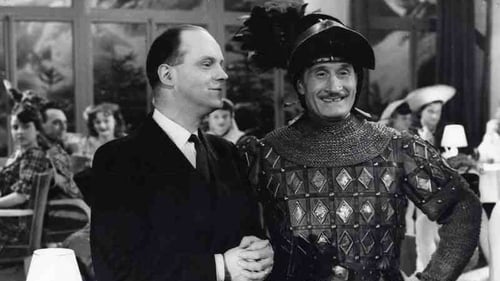
Raymond Corbier, sculpteur et mari de Sylvia
Raymond Corbier, a sculptor, has a wonderful wife, Sylvia, whom he adores. To save a passionate admirer who simulates suicide because she does not respond to her advances, Sylvia, an irreproachable wife, is forced to lie for the first time to Raymond.
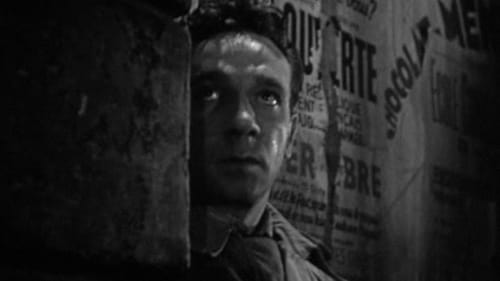
Commissioner Dufresne
An American is on the run in the streets and back alleys of France.

Commissioner Dufresne
Manhunt in Paris and as far as Belgium to catch an American gangster escaped from a police van.

Charles Breitkopf, son mari
An all-knowing interlocutor guides us through a series of affairs in Vienna, 1900. A soldier meets an eager young lady of the evening. Later he has an affair with a young lady, who becomes a maid and does similarly with the young man of the house. The young man seduces a married woman. On and on, spinning on the gay carousel of life.

André Ternay
Josette needs to marry within a year to get her aunt's money but her fiance has left.After getting permission from her godfather for a "white wedding, " she realizes she loves the godfather instead.

Bertrand du Guesclin
A chronicle of the life of Bertrand du Guesclin, grand officer of the French army in the 14th century.

Blomet
Returning from the cemetery where he has just buried his wife, Captain Blomet is on the point of committing suicide, when his valet reveals to him that the deceased had 17 lovers. Blomet undertakes to wash his honor in different ways according to his rivals.

Christine Jourdan is a highly rated sculptor who, to oust her impresario Ancelin, invented a lover named Nicolas. Soon she marries Jacques, but he proves to be jealous of the supposed lover. The newspapers publishing the death of a Nicolas, Christine takes the opportunity to announce the death of her lover. But the man in question was murdered by a woman. Jacques and Ancelin suspect Christine and indulge in the worst eccentricities.

Paul Barras
During the Directory, a handful of royalists tried to get the Dauphin Louis XVII to escape from the Temple.

Colonel Philippe Brideau
1824 in Issoudun. A bourgeois, Rouget, lives as a husband and wife, La Rabouilleuse, who holds him in her power. The old man's nephew, ex-Colonel Philippe Bridau of the Imperial Guard, swears to hunt the intruder.

Domino
Domino has only a wooden statuette, a typical piece of African art, to show for his trip. Arriving in Paris, Domino phones the famous Heller galleries to try to sell his statuette. He gets Heller’s wife, who uses him to deflect the suspicions of her jealous husband: she had an affair before their marriage. Domino gets carried away and persuades the young woman to go away with him.

Baron de Cigognac
Out of love for an actress, Isabelle, the Baron de Sigognac joins a traveling troop en route to Paris. When an actor dies, he takes over his role: that of Captain Fracasse.

Denis
Denis, a poor student in philosophy, works as a night porter in the Paris market of Les Halles in order to pay for his studies. Constantly weary, he falls asleep and dreams of a beautiful girl in white, Irène, with whom he falls in love.

Charles
From three successive marriages, Loys Erland had three very different boys: Charles, a convinced sportsman, Marcel, who runs a bank and Pierre, a young composer. All three meet, then reunite with the lovely Huguette. Everyone is courting. Charles seems favored, but Huguette ultimately slips away. The three brothers will thus see their mutual friendship and trust strengthened.

Gérard Barbier
By mutual agreement, a man and a woman are separated to allow the wife to join her lover.
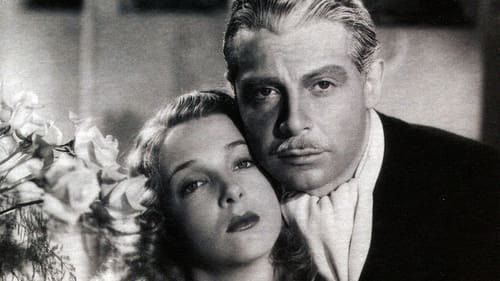
Pierre Leblanc
In pre-World Ward I in Paris, a budding artist, Pierre LeBlanc, falls in love and marries Janine, a dressmaker's assistant. Pierre has a flair for designing clothes, and he and his bride live in a blissful paradise, until the war breaks out and he becomes a soldier. Janine dies in childbirth and, no longer desiring to live, Pierre volunteers for a dangerous patrol behind German lines. While recuperating in the hospital from a wound he received on the mission, Pierre spends his time drawing sketches of dresses. He becomes rich and famous after the war. Years later, after devoting himself to his daughter, Pierre seeks a marriage with a girl no older than his daughter. A conflict develops and to ensure his daughter's happiness, Pierre sacrifices his own plans.
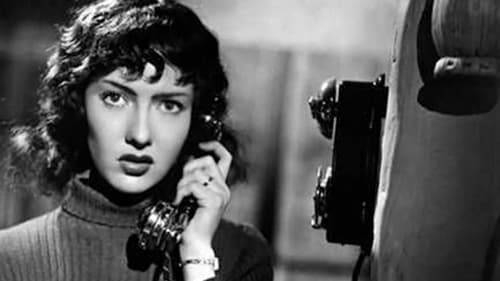
Frank
Frank, a hobo, ends up in a garage-truck stop in the middle of nowhere. Nick Marino, its older, kind and naive owner, is married to Cora, a sexy and mercenary woman half his age. Frank, although not a fan of hard work, accepts Nick's offer to work for him. Of course, it is not for Nick's sake that the young man becomes his attendant, but for the love of Cora under whose spell he has fallen at once. It does not take long before Cora, who despises her husband, asks her lover to help her get rid of him. Frank is reluctant at first but ...
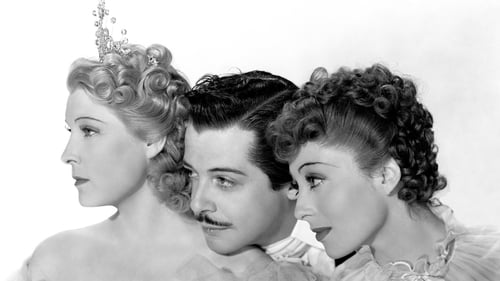
Johann 'Schani' Strauss II
Composer Johann Strauss risks his marriage over his infatuation with a beautiful singer.

Self
This short shows how Hollywood gets ready for the world premiere of an "important" movie. The film celebrated here is Marie Antoinette (1938), which had its premiere at the Carthay Circle Theatre. We see the street leading to the theatre transformed to suggest a garden that might be seen in a French palace. This includes the placement of trees and other foliage, as well as large statues along the route. Grandstands are set up so fans can see their favorite stars as they arrive for the premiere. Finally, the proverbial "galaxy of stars" arrives in their limousines. Fanny Brice and Pete Smith make remarks at the microphone set up on the carpet outside the theatre.
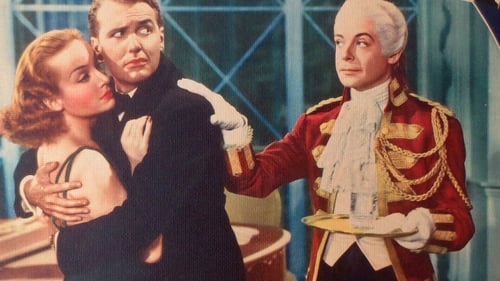
Rene
An incognito Hollywood star (Carole Lombard) in Paris meets a penniless nobleman (Fernand Gravet) who follows her to London.

Rene (archive footage) (uncredited)
This was one of the annual "blooper" reels screened by the Warners Club, an organization of Warners actors, crew and executives. It was meant to poke fun at the flubs and bloopers that occurred ont the set of some of the major Warner Bros. pictures of 1938.

Lieutenant Franz Korff
Nina Petrovna is a Russian beauty claimed by two Austrian officers.
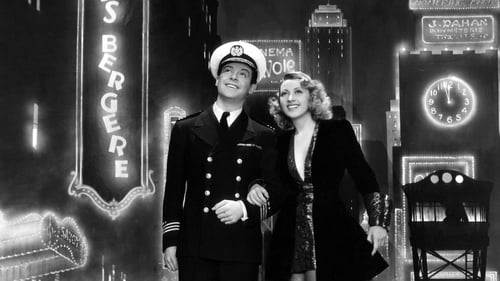
Alfred Bruger VII
A destitute, bored monarch falls in love with a chorus girl.

Antonin Rose
While still behind bars, a crook manages several schemes including one that almost gets his penniless young lawyer into trouble.The crook's mistress, married to a rich man, then becomes attracted to the lawyer.

Charles Panard
A ten-year old film when it was first released in the USA as "Symphonie D'Amour" in 1946. Panard (Fernand Gravet) is a talented composer who is having little success in his musical career. He is reduced to hiring out as a sandwich-board man to advertise what proves to be his own show. His girl, Jacqueline Francell, interests a Marquis in backing the show. She and Panard are happily reunited after the successful opening of his operetta.

Brémontier
At the urging of her childhood friend Brémontier, Lucie de Kéradec, a wealthy widowed countess who wishes to remarry, invites all of her seven suitors to her mansion. Her untold intention is to test them by claiming to be ruined. The experience is a success in that each of the potential husbands reveals his inner nature but a failure when it comes to finding a new life partner. None of the guests passes the test except - the eighth man, namely Brémontier who loved Lucie in secret but, being penniless, had not dared declare his flame to her.

Jean
Two unemployed musicians dress up as women to be hired by an all -female orchestra "Tulips from Holland"; they fall in love with two gorgeous musicians.

Georges Martin aka 'Touche-à-Tout'
A young supervisor is expelled from his high school after misleading his students during an outing. He made his fortune and basked on the Côte d'Azur. A young maid comes to his aid before he loses everything. She reveals to him that she is in fact a successful novelist.

Pierre
Annabella, Jean Gabin and Fernand Gravey star as a trio of circus trapeze artists. Both Gabin and Gravey love Annabella, but she has eyes only for Gravey. Seething with jealousy, Gabin plots revenge against his rival. He "accidentally" drops Gravey into a net during rehearsal -- but does he plan to do the same during a performance, when the trio works without a net?

Fernand Martin
A man creates a national scandal after he mistakenly kisses the wrong woman in a darkened cinema. The following year it was remade as an American comedy One Rainy Afternoon, released by United Artists.

Captain Douglas Parker
The famous singer Antonia left the stage to marry a country gentleman. She goes alone one day to Budapest to see again the operetta which revealed her and outlines a flirtation with an aviator engaged to her niece. The presence of mind of the latter pleasantly closes the adventure.

Henri Janvier
An intelligent young worker, enterprising but boastful, repeats to all the winds that, if he were the boss, we would see what we would see. One of the main shareholders of the factory takes him at his word for twenty-four hours.

Jean
When he is not conducting his orchestra, a talented young man invents a device to thwart car thieves.Associating himself with a rich Dutch baron, he falls in love with the baron's daughter.

Carl
'Ruritania. Incognito president falls in love with incognito queen he deposed.' (British Film Catalogue)

Franz

Édouard Puma & Fred
Edouard Puma, seduced by a seamstress at the age of 18, had a son whom he raised in secret, never having dared to confess his fault to his terrible father. Having grown up, the son comes to revive his father. After a series of complicated adventures, Father Puma learns the truth and everything works out.
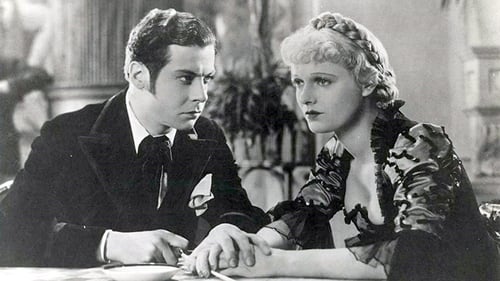
Carl Linden
A young girl falls in love with a young conductor in Vienna, and they marry. However, their marriage is threatened by a wealthy man.....

Fernand Brassart
A woman who is the mistress of a well off antiquarian receives a visit from a younger man. Is her lost son from long ago?

Robert Perceval
A jealous American, Mr Stevenson, travels to France with his very pretty young wife Kitty. He tries all sorts of subterfuges so that the charming young woman does not attract the attention of men. But she did not escape the gaze of a certain Robert Perceval.

Self

Mario

Marquis André de la Cour
"Tu seras duchesse!" ("You'll Be a Duchess!") With these words, self-made industrialist Poisson orders his daughter Lucie to marry a wealthy Duke. The duke's father objects to the union, whereupon Poisson arranges another marriage for his daughter, this time to an impoverished and sickly young marquis. Poisson's strategy runs something like this: the Marquis is expected to die soon, whereupon the widowed Lucie will become a marquess, and thus a worthy bride for the Duke. But the Marquis foils these plans by staging a miraculous recovery. The explanation? The Marquis and Lucie have been in love all along, and this was the only way that they could wed with Poisson's blessing. Darned clever, these Frenchmen!.

Francis Latour
Gisèle accidentally marries her stalker when she thinks she is signing a hotel register in a foreign country.

Armand Petitjean
To protect the honor of a married lady, a grammar professor pretends to be a singing teacher and falls in love with the real professor's daughter.

Jonge Jefke / Young Jefke
Kaatje, the daughter of the miller Schoonejans, and Jef, a little shepherd, who live near Delft, are happy together. In a floral parade, the carriage the two children have decorated with tulips wins the first prize. The next day, during a thunderstorm, lightning destroys the mill and kills Schoonejans. A life of misery starts for his widow and daughter. Remembering how the theatre manager Boolmans had applauded the dancing of Kaatje and Jef at the floral parade, the widow takes her daughter to Amsterdam, where Boolmans engages Kaatje. The years pass, and Kate has become a famous dancer.

Le petit Paul
Commissioned by Pathé Frères, Alfred Machin shoots several local stories in Belgium, in a typically Belgian setting. Machin produces not only historical dramas, but also some comedies mainly portraying the Brussels "zwanze", the typical humour of the city's inhabitants, which is characterised by a finely-balanced mix of self-deprecation and exaggeration. In doing so he made his films accessible and recognizable to his audience. Mr Beulemeester, notorious member of the local militia and very possessive when it comes to his daughter, is in this film fooled by charmer and suitor Van Soest.

Fernand Mertens
A cheetah runs away from a fair and steals Belgium's national symbol: Manneken Pis.
























